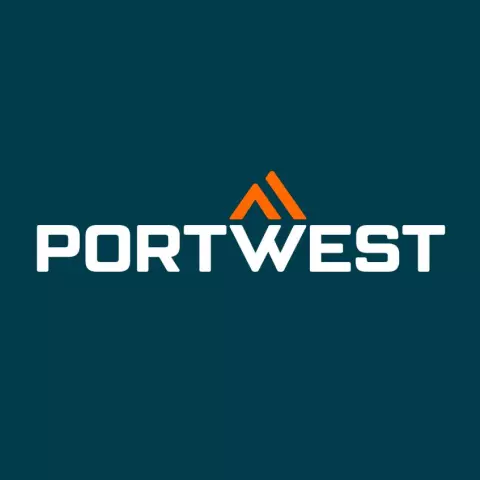Portwest Bizflame Work FR Standard Coat, Navy
Portwest
visit storeProduct description
Flame resistant coat designed to be worn over flame resistant garments. Constructed with a comfortable, light weight, highly innovative flame-resistant twill fabric.
Defines the neck area design that affects weather protection, comfort, and compatibility with safety equipment like helmets and other PPE.
Describes how the jacket sits on the body, affecting comfort, mobility, and layering options. Choose loose for maximum freedom, regular for balanced wear, or slim for a closer fit.
Defines the jacket's structural design, such as hooded, parka, or bomber, affecting weather protection, visibility, and functionality for specific work environments.
Determines how far the jacket extends down the body, affecting mobility, protection coverage, and compatibility with tool belts or other workwear.
Indicates the jacket's primary hue, affecting visibility, practicality, and compliance with workplace safety standards or team identification.
Indicates total storage compartments on the garment, enabling organization of tools, devices, and essentials for efficient, hands-free work.
- Heat & Flame Resistance
- Welding
- UV Protective
- Machine Washable
Request a free sample
Test first and buy later. Visit any product page to request your free sample.
Standards and labels
EN 11612:2015 is a European standard that specifies the requirements for protective clothing against heat and flame. This standard defines performance requirements for material, design, and testing of clothing that protects the wearer from heat and flames. Testing includes measuring the clothing's resistance to heat and flame, as well as its ability to self-extinguish. Pass/fail results are based on the clothing meeting or not meeting the specified requirements.
EN 11611:2015 is a European standard that specifies the requirements for protective clothing for use in welding and allied processes. This standard defines performance requirements for material, design, and testing of clothing that protects the wearer from heat and flames. Testing includes measuring the clothing's resistance to heat and flame, as well as its ability to self-extinguish. Pass/fail results are based on the clothing meeting or not meeting the specified requirements.
Test results
Welding Protection Class 1The standard EN 11611:2015 establishes criteria for protective clothing used during welding and allied processes, specifically regarding safety to reduce the risk of harm from sparks, spatter, and other hazards associated with welding. In this context, a Class 1 test result indicates the clothing provides basic protection suitable for less hazardous welding techniques where lower levels of spatter and radiant heat are anticipated. The test for this classification involves subjecting the fabric to controlled ignition and monitoring its resistance to flame spread, heat transfer, and the formation of holes. The fabric material must neither ignite nor continue to burn after the source of ignition is removed. In practical terms, products achieving Class 1 under EN 11611:2015 are suitable for types of welding that produce lower spatter and radiant heat, making them ideal for less intense welding operations but not for those that involve higher risks that might require more robust protective gear categorized in higher classes.
EN 1149-5:2008 is a European standard that specifies the requirements for electrostatic dissipative (ESD) gloves. The standard defines performance requirements for material, design, and testing of ESD gloves. The gloves must be able to effectively discharge static electricity and protect the wearer from ESD. Testing includes measuring the surface resistance of the glove material. Pass/fail results are based on the gloves meeting or not meeting the specified requirements.
Test results
Material Performance TestedThe EN 1149-5:2008 standard specifies the performance requirements for material used in protective clothing designed to avoid incendiary discharges. The test result Tested means that the material has undergone relevant evaluation procedures to confirm its static dissipative properties. These tests generally involve measuring the electrical resistance of the material in ohms (Ω) to determine its capability to dissipate electrostatic charges and prevent sparking that could ignite flammable substances. The practical implications of this result for the respective product category (like protective workwear for use in explosive atmospheres) are significant, as it ensures that the clothing provides a level of protection against electrostatic discharges, potentially reducing the risk of fire or explosion in environments with flammable gases, vapors, or dusts.
CE Marking is a label that shows a product meets certain safety and environmental standards set by the European Union. To get the CE Marking, a company must test and certify their product meets these standards. CE Marking is required for many products sold in the EU, including electronics, machinery, toys and medical devices. It helps ensure that products are safe for consumers and the environment, and allows for easy trade within the EU.
PPE stands for "personal protective equipment." PPE Category 3 refers to equipment that is complex and provide the highest level of protection such as powered respirators, SCBA, and full body suits. In Europe, PPE Category 3 must meet certain safety standards set by the European Union, which means that it must be designed and manufactured to protect the user without causing harm. Companies that make or sell PPE must prove that it meets these standards. They also must have a quality management system in place, have to be audited regularly by a notified body and have to have a technical documentation.
Portwest delivery terms
Free delivery when you order more than 300,00 € from Portwest
Supplier shipping fee 4,74 €
Brand minimum 20,00 €
35,00 €
Shipping fee is 4,74 € for orders under 300,00 €
Sold in units of one piece
Need larger quantities?
Other products you may like
Recently viewed
Need help?
Get help from our experts
Other products you may like
Similar products you may like
Autonomous sourcing platform
The most efficient way to source and order supplies for your operations
Sourcing
Ordering
List products you’re looking for and we’ll find the best products and prices for you – all for free.
Need help?
Get help from our experts



